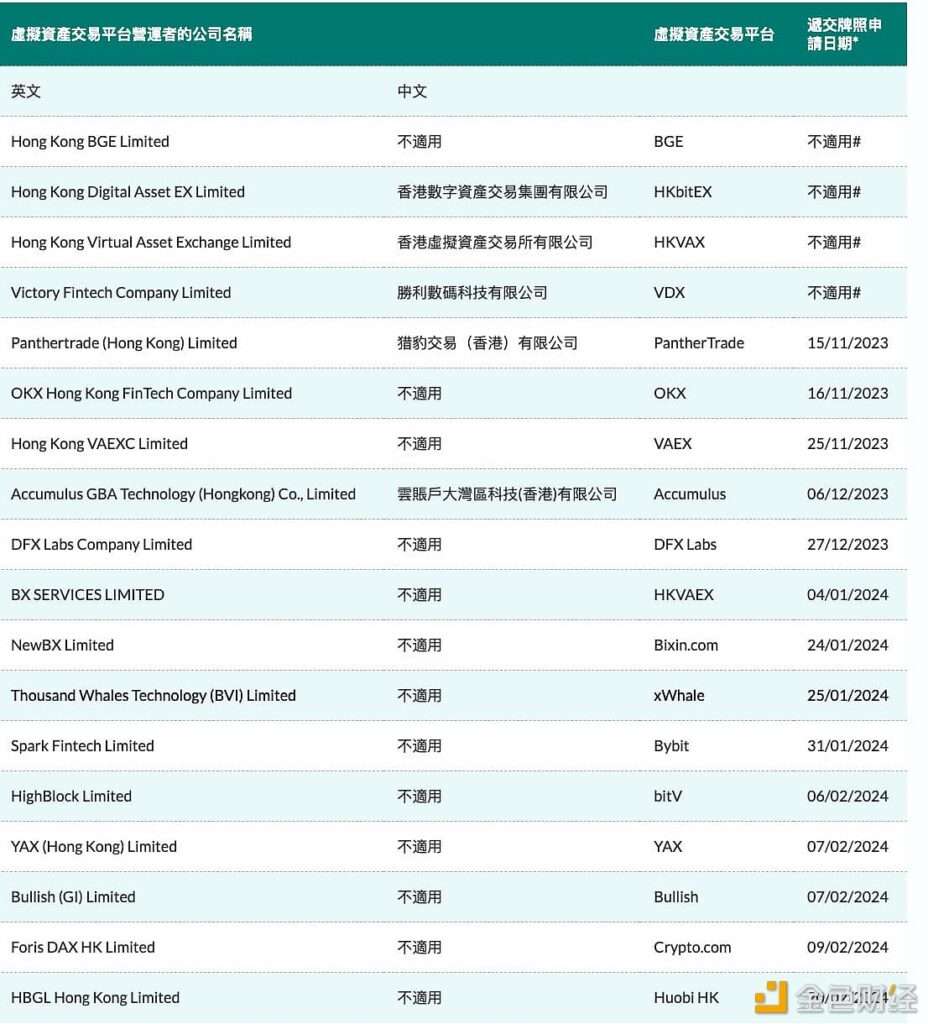
Hong Kong’s Crypto License Surge
Hong Kong Securities and Futures Commission (SFC) has received 18 applications for cryptocurrency licenses from both local and international entities.
In less than two months, the Hong Kong Securities and Futures Commission (SFC) has received 18 applications for cryptocurrency licenses from both domestic and international businesses.
A local article reported on February 20th that Huobi HK, the Hong Kong branch of cryptocurrency exchange Huobi, had filed with the Hong Kong SFC for a license to operate a virtual asset trading platform. Beginning in mid-November 2023, a total of eighteen cryptocurrency exchanges, including Crypto.com, OKX, Bybit and DFX Labs submitted applications for the same license.

To obtain a license applicants must undergo rigorous due diligence procedures, including a comprehensive financial audit that goes beyond verifying reserves. As a result, Web3 companies must invest up to $25 million to develop their apps for these licenses.
The new clarification of exchange licensing laws has also attracted conventional brokerages, like the Chinese stock brokerage Tiger Brokers to Hong Kong. John Fei Zeng, director and chief financial officer of Tiger Brokers, stated that the brokerage improved its Type 1 SFC license in January to allow cryptocurrency trading for Hong Kong-based financial institutions and professional investors.
“Other than stocks and options, crypto is becoming an important asset class. It’s hence a natural extension of business as a broker-dealer to add a new asset class, and the underlying Web3 technology is also integrated with Tiger’s fintech background.”
The regulator also received its first application for a spot Bitcoin. On January 26, I purchased an exchange-traded fund from Harvest Hong Kong, one of China’s largest fund managers. Hong Kong has established a minimum insurance requirement of 50% for licensed cryptocurrency exchanges managing consumers’ assets, even as it prepares for the adoption of cryptocurrencies.
All assets under custody must have a minimum of 50% insurance coverage, as OSL Exchange has previously revealed. Simultaneously, OSL announced that it had entered into a two-year agreement for an insurance policy that would insure ninety-five percent of its users’ assets with Canopius, a syndicate of Lloyds of London underwriters.





